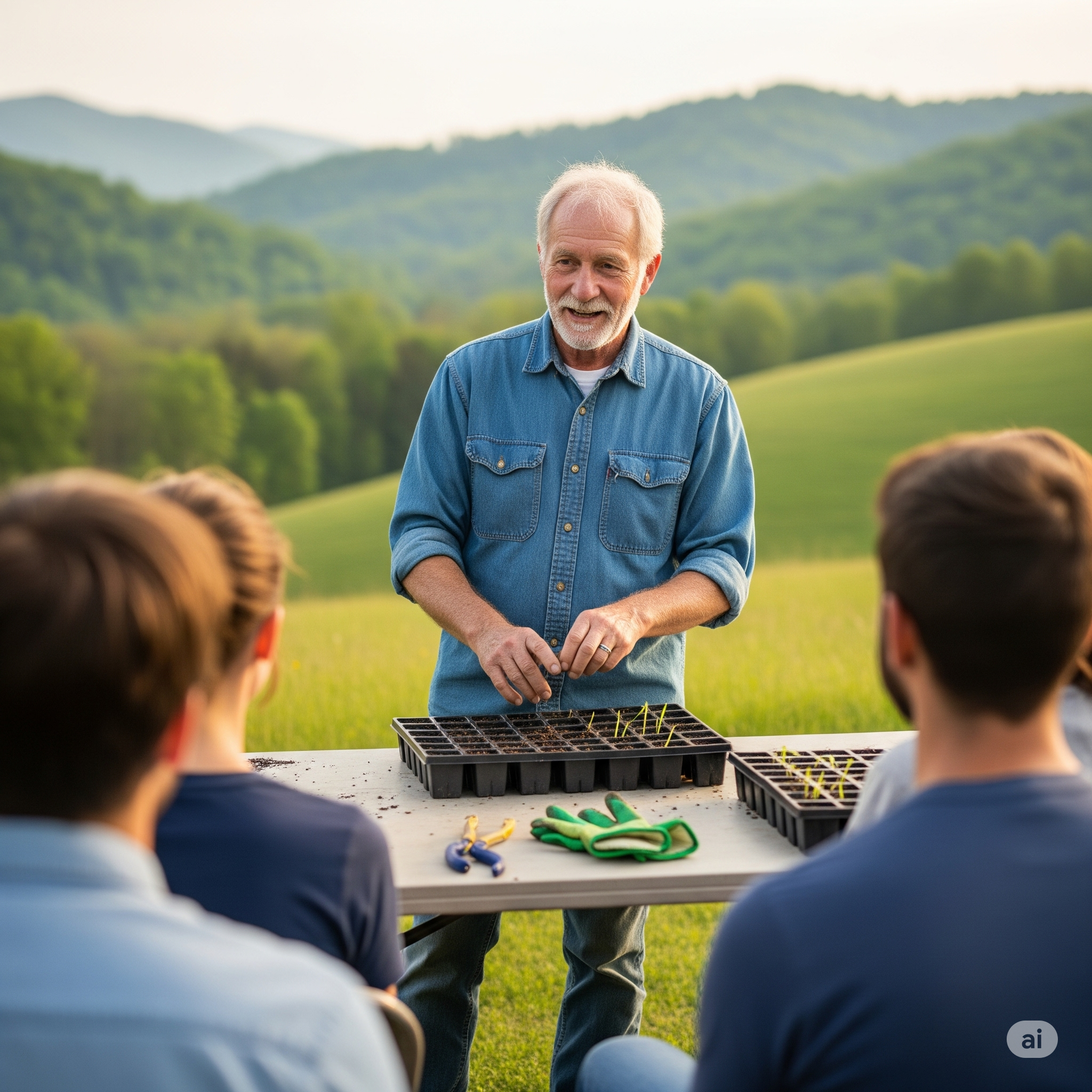
What Exactly Do They Do?
Hello, mountain gardeners and nature lovers! Have you ever admired the lush greenery of the Appalachian Highlands and wished you could create a similar oasis? You’re in luck! The Master Gardener Program is not just about beautiful flowers; it’s about empowering communities with practical and sustainable gardening techniques that benefit the environment. For this reason, this program is your key to turning your green space dreams into reality.
These dedicated volunteers, trained by their respective state’s Cooperative Extension (such as NC State Extension, University of Tennessee Extension, and Virginia Cooperative Extension), are the experts on whom you can rely for all your plant-related questions.
They host plant clinics, answer phone and email inquiries for horticultural advice, develop and maintain beautiful demonstration gardens, and even work with youth, seniors, and other special groups in the community. Want to learn about composting techniques and diagnose persistent plant problems? They can teach you.
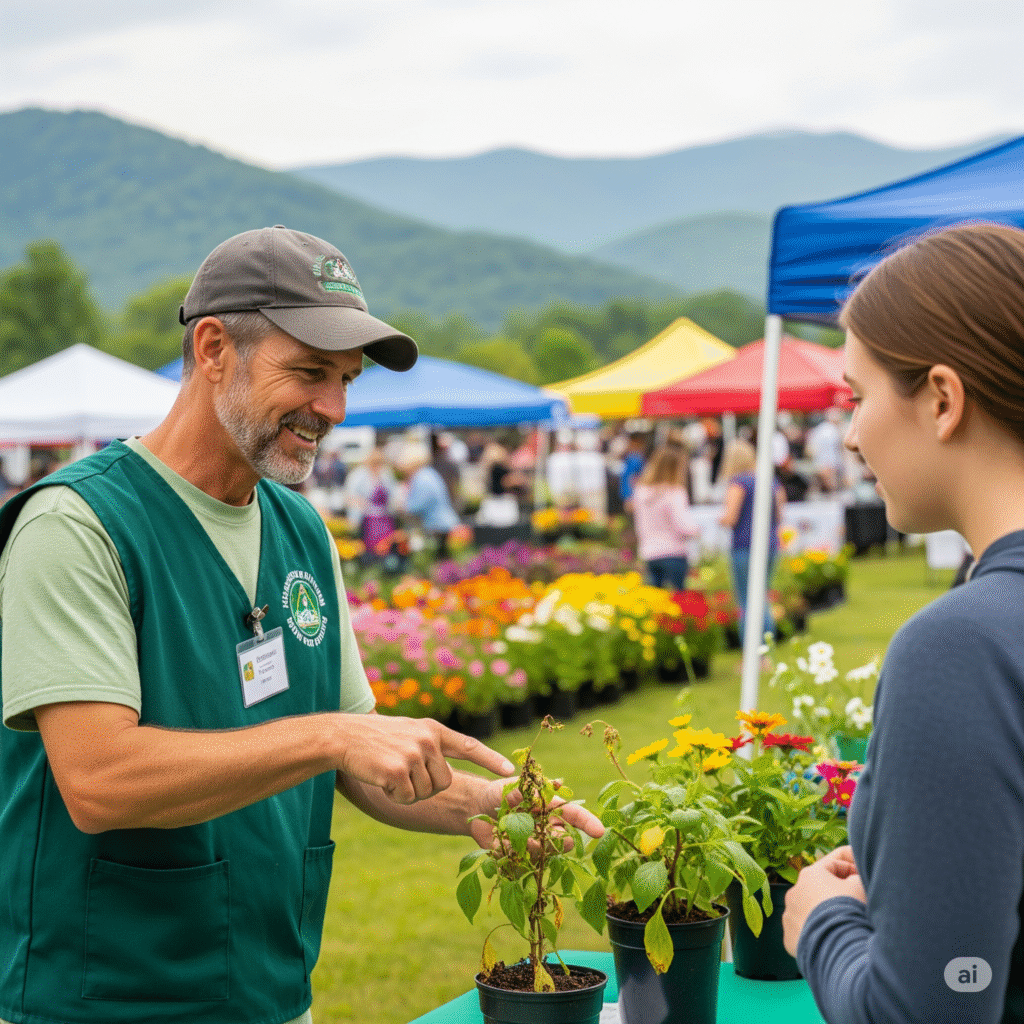
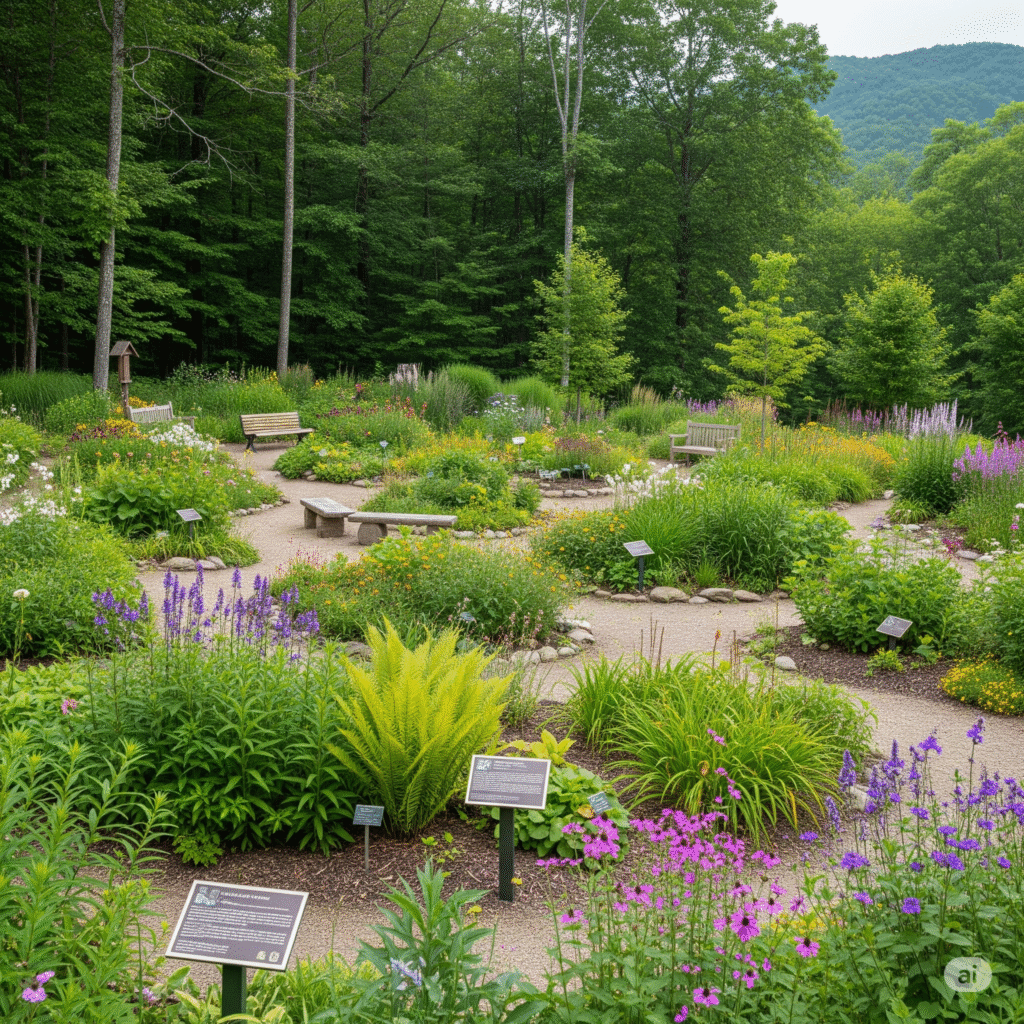
Funding Their Green Efforts
How do these essential programs maintain healthy soil and disseminate knowledge? Like their counterparts elsewhere, the Master Gardener programs in the Appalachian Highlands are supported by state universities and Cooperative Extension services. However, much of their local support comes from community fundraising, grants, and committed volunteers.
These programs go beyond gardening; they foster a sense of community and encourage environmental stewardship. For instance, in Southwest Virginia and parts of Tennessee, the Cumberland Forest Community Fund has awarded grants for nature-based community projects, such as installing irrigation systems at community gardens. North Carolina’s program benefits from an Extension Master Gardener Endowment, while Virginia’s program has a State Coordinator Endowment, offering lasting financial support through donations and even special license plate sales! This illustrates the high value these communities place on their Master Gardeners.
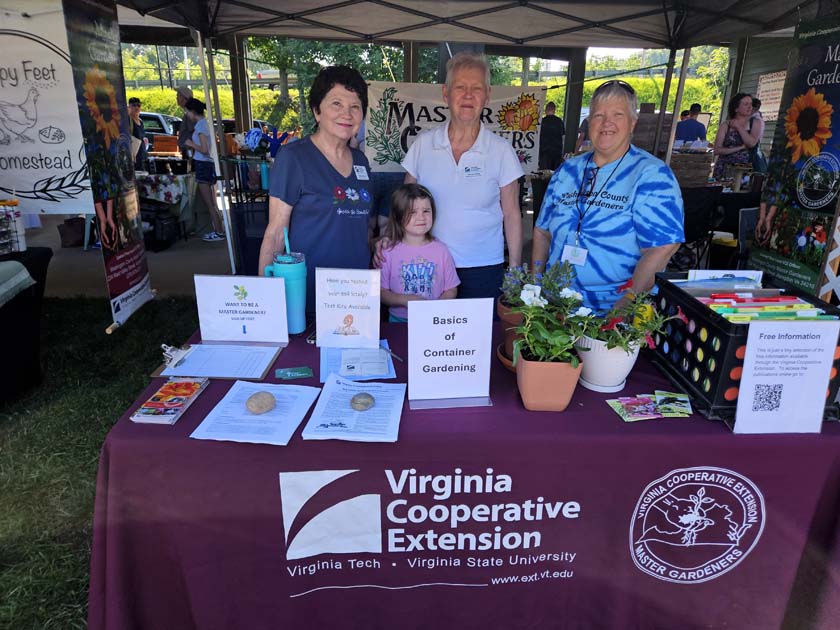
Where to Find Their Expertise
The geographic reach of the Master Gardener program in the Appalachian Highlands is broad. It includes many counties across all three states. Active programs are present in numerous counties throughout the region. For example, in North Carolina, counties such as Buncombe (home to Asheville) and Polk have well-established, strong programs. Tennessee has 39 county-based programs, many of which serve the eastern and mountainous areas. In Virginia, Master Gardener associations are active in counties like Washington, Wythe, Bland, and Smyth, as well as in the New River Valley, all part of the scenic Appalachian landscape.
There are local programs, typically based in their county’s Cooperative Extension office, that serve as hubs for resources and volunteer coordination. For example, the Polk County Center in North Carolina is a key location. Similar organizations include the Washington County Master Gardeners in Virginia and the Northern Tennessee Master Gardeners Association, among others in the region. You can find these organizations and local branches at farmers’ markets, community events, and through various outreach efforts.
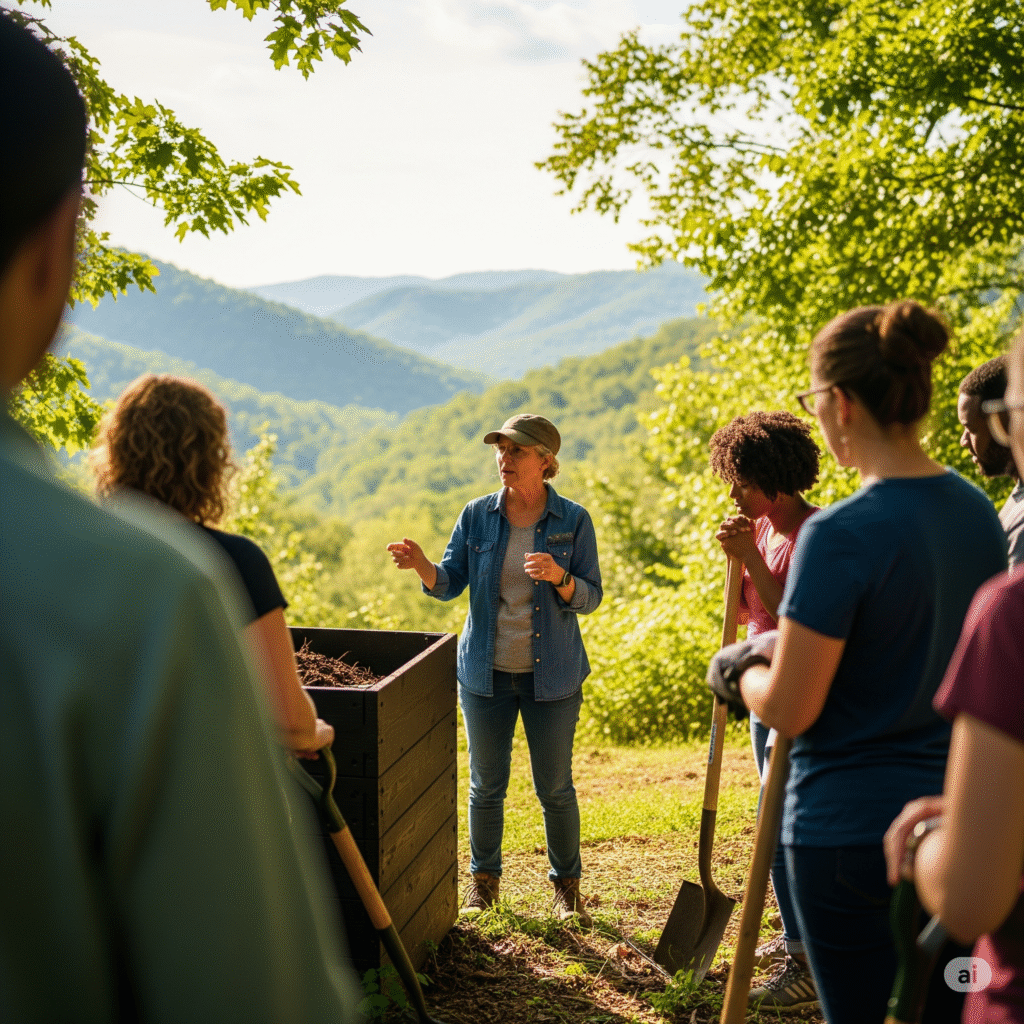
The Rigorous Road to Becoming a Master Gardener
The process to become a Certified Master Gardener involves a comprehensive study of horticulture science! Across all three states, prospective volunteers typically complete 40 to 60 hours of in-depth classroom instruction. These courses, often led by university specialists and Extension agents, cover a broad range of topics vital for gardening success in our mountain climate. We’re talking about soil science, plant nutrients, composting, integrated pest management (IPM), lawn care, food production, herbaceous and woody plants, native plants, wildlife, and even landscape design.
But it isn’t just about lectures! Trainees engage in hands-on labs and practical activities. After finishing the classroom portion and passing an open-book exam, new Master Gardeners begin an internship that usually involves 40 to 60 hours of volunteer work. This real-world experience enables them to apply their new knowledge in practice. To keep their certifications, Master Gardeners must complete yearly volunteer hours (typically 20-25 hours) and continuing education hours (around 8-12 hours), ensuring their skills and knowledge stay current with the latest scientific research and best practices.
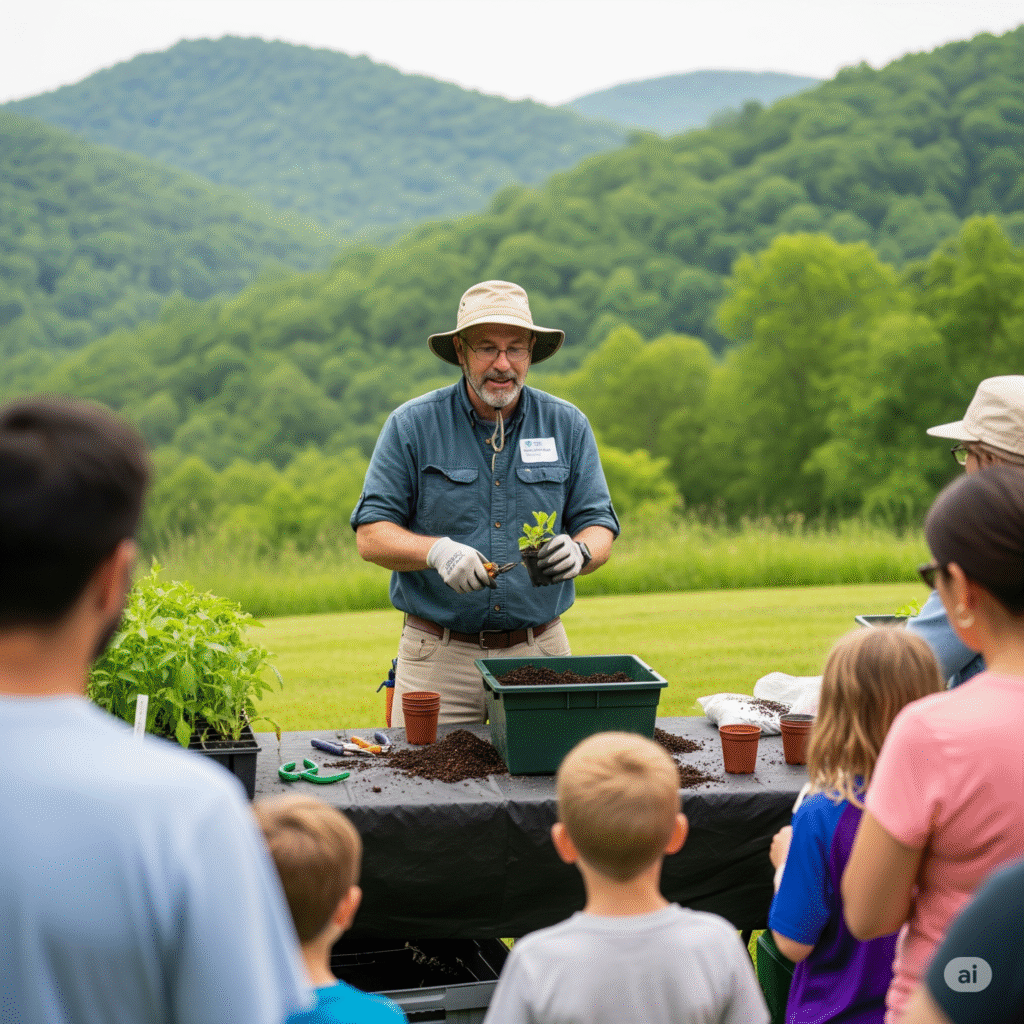
Meet the Organizers and How to Join
Although the leaders of each county program may vary, the overall efforts are coordinated by dedicated Extension agents and program coordinators at the University of Tennessee Extension, NC State Extension, and Virginia Cooperative Extension. These professionals work closely with local Master Gardener associations to support volunteers and deliver educational programs.
Are you feeling the urge to get involved and make a difference? Join the Master Gardener program. It’s an excellent way to expand your knowledge and give back to your community. Start by reaching out to your local county Cooperative Extension office. They will give you details about applications, information sessions, and training schedules. These programs often seek passionate people who love gardening, are eager to learn, and want to share research-based information with others. Keep an eye on your state’s Extension Master Gardener websites – they are your best resource for finding out when the next training class will begin in your part of the Appalachian Highlands!
If you want to solve a garden mystery, consider learning about plants that grow well in these mountains or simply connect with fellow gardeners. The Master Gardener Program in the Appalachian Highlands is the way to go.